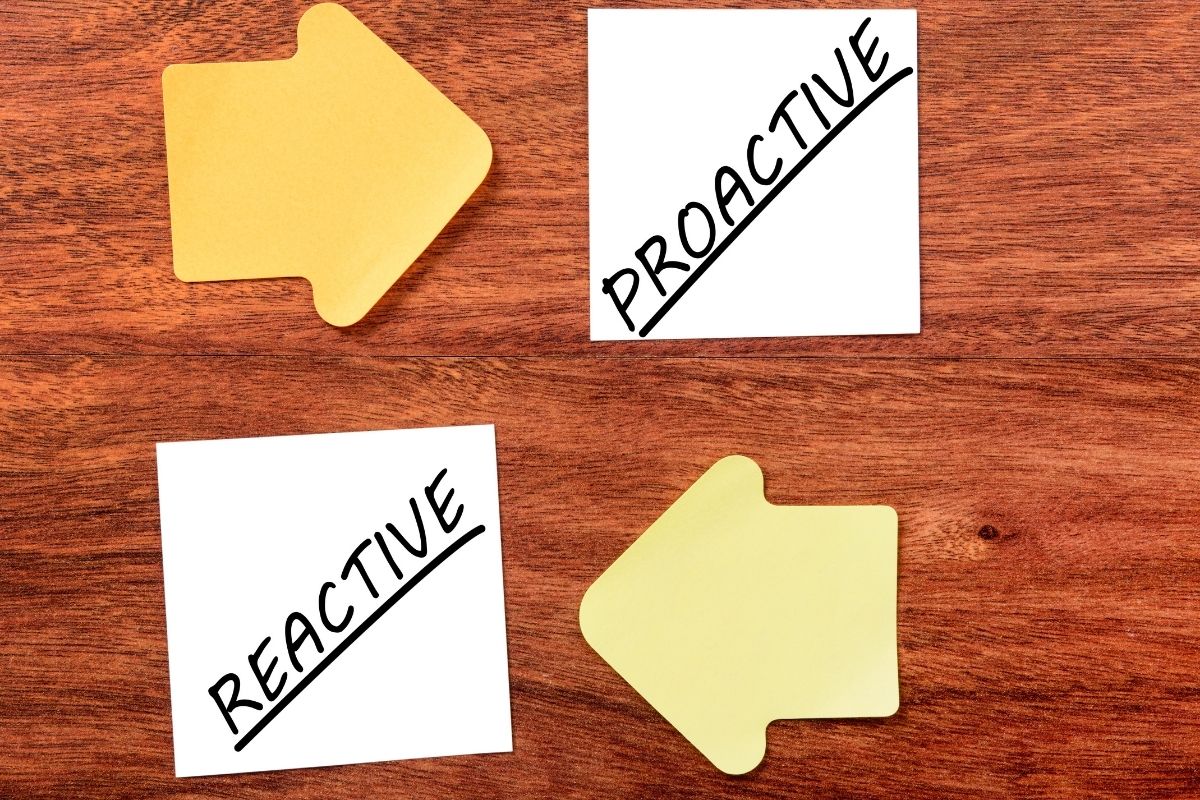How to be Less Reactive

Anger management is like taming a wild beast within you.
Ever felt your blood boil when someone cuts you off in traffic?
Or wanted to punch a wall when your boss gives you extra work?
You’re not alone!
Anger is as natural as breathing, but when it gets out of hand, it can turn your life upside down faster than a bull in a china shop.
Did you know that people who can’t control their anger are 3 times more likely to have heart problems?
Yikes!
But don’t worry, I’ve been there, done that, and got the “I survived my temper” t-shirt.
I’m here to share some nifty tricks that’ll help you keep your cool, even when life turns up the heat.
Stick around, and I’ll show you how to transform from a raging bull into a zen master.
By the end of this article, you’ll have the tools to face any frustration with the calmness of a cucumber.
Trust me, your blood pressure (and your friends) will thank you!
Anger Management 101: 5 Secret Weapons to Conquer Your Inner Hulk
#1 Become a Detective of Your Own Rage
First things first, let’s play Sherlock Holmes with your anger.
What pushes your buttons?
Is it your nosy neighbor?
Your always-late friend?
Maybe it’s something deeper, like feeling stressed about money or work.
Once you crack the case of what’s really bugging you, you’re halfway to solving the mystery of your anger.
Remember, some folks have anger issues passed down in their family, like an unwanted heirloom.
If you’re curious about whether your hot temper is homegrown or hereditary, check out this article on whether anger issues are genetic.
#2 Master the Art of Zen Patience
When anger hits, it’s like wearing glasses that make everything look red.
But here’s a secret: you can take those glasses off!
Instead of exploding like a shaken soda bottle, try this:
Take a deep breath.
Count to ten (or a hundred if you’re really steamed).
It’s like hitting the pause button on your anger.
#3 Find Your Anger Avengers
Everyone needs a sidekick, especially when battling the villain of rage.
Find a friend who’s as cool as a cucumber.
They can be your voice of reason when you’re seeing red.
Or chat with a pro – therapists are like personal trainers for your emotions.
They’ll teach you anger management moves that’ll make you a superhero of calmness.
#4 Become a Body Language Ninja
Your body spills the beans about your mood before your mouth does.
When you’re mad, you might look like a puffed-up rooster ready for a fight.
Try this instead: relax your shoulders, stand tall, and breathe deep.
It’s like putting on a “chill pill” costume – soon, you’ll start feeling as relaxed as you look!
#5 Keep It Real, Not Perfect
Stop trying to be Superman or Wonder Woman all the time.
It’s exhausting and, newsflash, nobody’s perfect!
Embrace your quirks.
They make you as unique as a snowflake.
When you accept yourself, warts and all, you’ll stop comparing yourself to others.
And that means fewer reasons to get mad!
Therapy: Your Personal Anger Gym
Think of therapy as a gym for your emotions.
A therapist is like a personal trainer for your mind.
They’ll teach you cool tricks to turn your angry thoughts into happy ones.
It’s like magic, but better because it actually works!
The best part?
Anger doesn’t have to be your lifelong nemesis.
With some practice, you can turn that frown upside down and live your best life.
There are tons of ways to kick anger to the curb:
– Learn to say “no” without feeling guilty (it’s liberating!)
– Become a pro at speaking your mind without losing your cool
– Try out anger management classes (they’re like anger boot camps, but fun!)
And here’s a pro tip: Meditation and yoga are like kryptonite for anger.
They keep you focused on the now, instead of stewing about the past or worrying about the future.
Don’t forget to treat your body like a temple.
Exercise, eat your veggies, and get your beauty sleep.
A healthy body makes for a happy mind!
CBT: The Jedi Mind Trick for Anger
CBT, or Cognitive Behavioral Therapy, is like Jedi training for your brain.
It teaches you to look at stressful situations like Yoda would – with wisdom and calm.
The goal?
To break the cycle of getting stressed and angry over every little thing.
It’s all about swapping those grumpy thoughts for more realistic ones.
Like turning “Everything sucks!” into “This situation is tough, but I can handle it.”
DBT: Be the Boss of Your Emotions
DBT, or Dialectical Behavior Therapy, is like becoming the CEO of your feelings.
It teaches you to live in the moment and stop dwelling on stuff you can’t change.
One cool DBT trick is mindfulness.
It’s like giving your brain a mini-vacation from stress.
Try this: Close your eyes and focus on your breathing.
In… out… in… out…
It’s simple, but boy, does it work!
Yoga: Bend It Like a Calm Person
Yoga isn’t just for flexible people in cute outfits.
It’s a secret weapon against anger!
Striking a pose helps you tune into your body and chill out.
Plus, you might end up with awesome balance and a rockin’ bod as a bonus!
Relaxation: Your Personal Chill Pill
Relaxation techniques are like a spa day for your mind.
Meditation clears your head of all that angry clutter.
Mindfulness keeps you focused on the here and now, not on what’s bugging you.
It’s like hitting the refresh button on your brain!
Exercise: Sweat Out the Anger
Exercise is like a wonder drug for your mood.
It’s scientifically proven to make you happier and less anxious.
Aim for 30 minutes of moving your body, 5 times a week.
It’s like taking your anger for a walk and leaving it behind!
Lifestyle Changes: Small Tweaks, Big Results
Little changes in your daily routine can make a huge difference in your mood.
Eat regular meals to keep your blood sugar steady.
Drink water like it’s going out of style.
Ditch the caffeine and booze – they’re not doing your temper any favors.
And for Pete’s sake, get some sleep!
7-9 hours a night can turn you from a grumpy cat into a ray of sunshine.
Be Positive: Your Mind’s Cheerleader
Negative thoughts are like weeds in your mental garden.
They choke out all the good stuff.
Instead of beating yourself up, try being your own biggest fan.
Cheer yourself on like you’re watching your favorite sports team.
Getting Help: It’s Okay to Call in the Cavalry
Sometimes, anger is too big to tackle alone.
And that’s perfectly okay!
If you’re feeling overwhelmed, reach out for help.
Talk to a friend, a therapist, or even your doctor.
Remember, asking for help isn’t a sign of weakness.
It’s a sign that you’re smart enough to know when you need backup!
Final Thoughts: Your Anger-Free Future Starts Now!
Managing anger doesn’t have to be harder than solving a Rubik’s cube blindfolded.
With these simple tricks up your sleeve, you’re well on your way to becoming the Zen master of your emotions.
Who’ll benefit most from this anger management guide?
Anyone who’s ever felt their temper rising faster than a thermometer in the Sahara!
So take a deep breath, put these tips into action, and get ready to enjoy a calmer, happier you.
Your future self (and everyone around you) will thank you!

Author: Michelle Landeros, LMFT
Michelle Landeros is a Licensed Marriage Family Therapist (LMFT). She is passionate about helping individuals, couples and families thrive.









